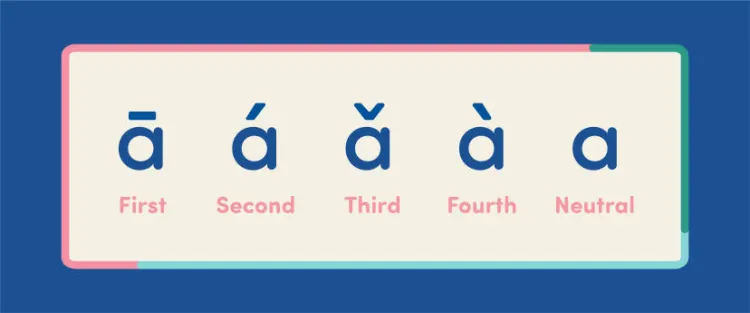China is a vast and diverse country, not only in terms of its landscapes and cultures but also in its languages. Mandarin may be the official language, but it's just one of many dialects in China. Often mutually unintelligible, these dialects reflect the country's rich linguistic heritage and regional diversity. More than 200 individual dialects, frequently mutually unintelligible, reflect the country's rich linguistic heritage and regional diversity.
In addition to Mandarin, Cantonese is a widely spoken dialect in Southern China and Hong Kong. Other dialects include Shanghainese, a variety of Wu Chinese spoken primarily in Shanghai and the surrounding areas in eastern China, and Hokkien, a dialect primarily spoken in Fujian province in China and overseas Chinese communities in Southeast Asia. Understanding these dialects is key to appreciating the complexity and depth of Chinese language and culture.
What is Mandarin?

Mandarin is the most widely spoken language in the world, with over a billion native speakers. Originally, it was the dialect of Chinese spoken in Beijing, the capital of China. As Beijing has been China's political and cultural center for centuries, the Mandarin spoken in Beijing has significantly influenced the development of Standard Chinese. Today, it is the official language of China.
Mandarin is a tonal language, meaning that the pitch or intonation of a syllable can change its meaning. Compared to many other languages, it is characterized by its relatively simple grammar, with no verb conjugations, no noun genders, and no singular/plural distinctions.
One of Mandarin's defining features is its writing system, which uses Chinese characters. These characters are logograms, meaning that each character represents a word or a meaningful part of a word. There are thousands of Chinese characters, but an educated Chinese person will know around 5,000-8,000 characters. For Chinese language learners, here is a beginner's guide to learning Chinese and 50 Chinese words for beginners.
Mandarin has four tones, plus a neutral tone, making it challenging for learners to master pronunciation. However, the grammar is relatively straightforward, with a subject-verb-object (SVO) word order and few grammatical markers. Mandarin also has a relatively simple system of verb tenses compared to many other languages.
Overall, Mandarin is a fascinating language with a rich history and culture. Learning Mandarin can open up a world of opportunities in terms of communication and understanding Chinese culture and society.
What is Cantonese?

Cantonese is a dialect of Chinese spoken primarily in the Guangdong province of China, Hong Kong, and Macau. It is also spoken by Chinese communities in Southeast Asia, North America, and other parts of the world.
One of the key features of Cantonese is its use of six tones, which can change the meaning of a word. This tonal aspect can make Cantonese challenging for learners to become familiar with tonal languages. Additionally, Cantonese has a more complex phonology than Mandarin, with a greater variety of consonant sounds and a more significant number of diphthongs.
Cantonese is traditionally written using traditional Chinese characters, although simplified characters are used in some contexts. The grammar of Cantonese is similar to that of Mandarin, with a subject-verb-object (SVO) word order and relatively simple verb conjugations.
Cantonese is known for its rich vocabulary, expressive tones, and unique slang, reflecting the creativity and wit of Cantonese speakers. Cantonese speakers often use slang to add humor, express emotions, or be more informal in their speech. Here are some examples of Cantonese slang:
佛心 (fat1 sam1): Literally "Buddha's heart," this slang term describes someone who is very generous or kind-hearted.
攞錯 (lo2 co3): Means "to make a mistake" or "to get it wrong."
街知巷聞 (gaai1 zi1 hong6 man4): Literally "street knowledge, lane rumors," this phrase refers to gossip or hearsay.
飛佛 (fei1 fat1): This slang term describes something costly.
開心果 (hoi1 sam1 gwo2): Literally "happy nut," this term describes someone who is cheerful or in a good mood.
打醬油 (daa2 zoeng3 jau4): Literally "to buy soy sauce," this phrase describes someone just observing and not actively participating.
賣飛 (maai6 fei1): Means "to waste time" or "to procrastinate."
轉左 (zyun2 zo2): Means "to change direction" or "to change plans."
Cantonese is also known for its wordplay, "mo4 lei4 tau4" (磨哩托) in Cantonese. It is a form of linguistic humor deeply rooted in Cantonese-speaking regions, particularly Hong Kong. It is characterized by its clever use of puns, homophones, and double entendres to create humorous expressions.
One of the most common forms of Cantonese wordplay is homophonic puns, where words that sound similar but have different meanings are used to create a humorous effect. For example, the Cantonese phrase "gau2 lau4" (狗漏), which sounds like "gou3 lou1" (高老), meaning "high and old," is used to describe someone who is old but still energetic.
Another form of Cantonese wordplay involves using characters with similar pronunciations but different meanings to create humorous or clever phrases. For example, the phrase "ji1 zyu6" (雞豬), which means "chicken and pig," is used to describe someone messy or disorganized, as the characters for "chicken" and "pig" together create the image of a chaotic scene.
Cantonese wordplay is used for humor and as a form of cultural expression and identity. It is often used in popular culture, such as Cantonese opera, comedy films, and television shows, to entertain audiences and convey subtle messages or social commentary.

Differences of Cantonese and Mandarin
Mandarin and Cantonese differ in pronunciation, vocabulary, and, to some extent, grammar. Mandarin is characterized by its use of four tones, a neutral tone, and relatively simple grammar compared to many other languages. On the other hand, Cantonese is known for its use of six tones, which can change the meaning of a word, and its more complex phonology compared to Mandarin. Cantonese has a different vocabulary and expressions from Mandarin, reflecting its unique cultural and historical influences.
Here is a comparison of the critical differences between Cantonese and Mandarin:
Aspect | Cantonese | Mandarin |
Tones | 6 tones | 4 tones, plus a neutral tone |
Pronunciation | Pronounced final consonants | Fewer final consonants |
Vocabulary | Different vocabulary and slang | Some shared vocabulary, different slang |
Characters | Uses traditional Chinese characters | Uses simplified Chinese characters |
Grammar | Similar grammar structure, but some differences | Similar grammar structure, but some differences |
Popularity | Predominant in Hong Kong, Macau, Guangdong | Official language of China, widely spoken in Taiwan |
Examples of When the Two Languages Are Different "Hello"
Cantonese: 哈囉 (haa1 lo3)
Mandarin: 你好 (nǐ hǎo)
"Thank you"
Cantonese: 多謝 (do1 ze6)
Mandarin: 謝謝 (xiè xiè)
"How are you?"
Cantonese: 你點呀? (nei5 dim2 aa3)
Mandarin: 你好嗎? (nǐ hǎo ma)

What Language Should I Learn?
The choice between Cantonese and Mandarin depends on your goals and interests. Mandarin may be more practical due to its widespread use if you plan to visit or work in mainland China. However, if you live in a Chinese diaspora community where Cantonese is the dominant dialect, Cantonese may be more beneficial. Consider your future interactions and whether you have a specific interest in a particular region or culture. Both languages have challenges and rewards, so choose based on what aligns best with your goals.
FAQ
Do Cantonese speakers understand Mandarin?
Many Cantonese speakers can understand Mandarin, especially in Hong Kong and Macau, where exposure to Mandarin is now common. However, the level of understanding can vary depending on the individual's exposure and experience with Mandarin.
How do you know if you speak Cantonese or Mandarin?
If you are unsure whether you speak Cantonese or Mandarin, consider the region you are from or the language spoken by your family. Cantonese is more prevalent in southern China, Hong Kong, and Macau, while Mandarin is the official language of mainland China.
Who speaks Cantonese in China?
Cantonese is also primarily spoken in the Guangdong province of China, Hong Kong, and Macau. It is also spoken by Chinese communities worldwide, particularly in Southeast Asia and North America.
Is Mandarin or Cantonese more prestigious?
No one language or dialect is "better" than the other. Still, perceptions of "prestige" can be influenced by historical, political, and cultural factors, as well as the economic and social power associated with the language. Mandarin is the official language of China and is more widely used. Mandarin is the language of government, education, and media in China. Proficiency in Mandarin is often seen as a sign of education. On the other hand, Cantonese is highly valued in regions where it is spoken and considered an integral part of the local culture.
Looking for an online Chinese class for your kids to learn Mandarin and Chinese culture? LingoAce is one of the best ways to learn Chinese for kids online. Each one-on-one lesson is the product of nearly 200 hours of curriculum development, teacher training, and quality control. LingoAce classes are tailored to meet your child's learning needs.
Experience a redefined Chinese learning experience and book a free trial class with us today.



